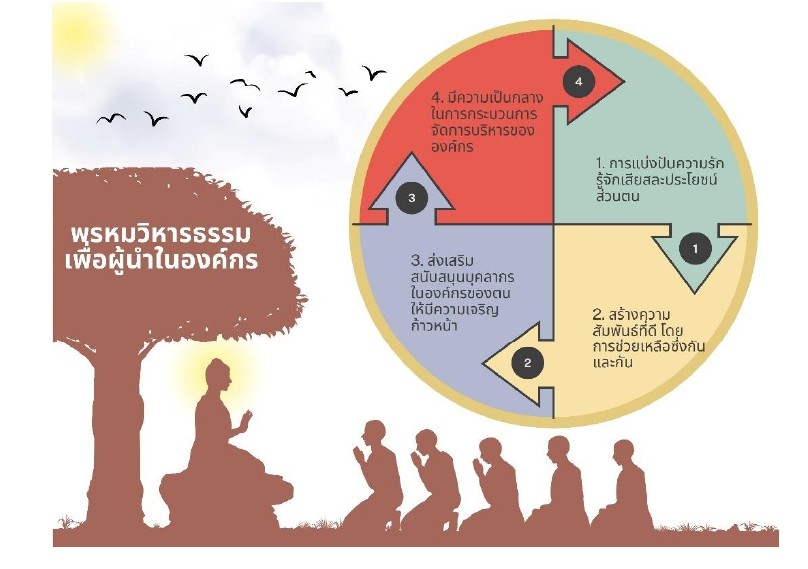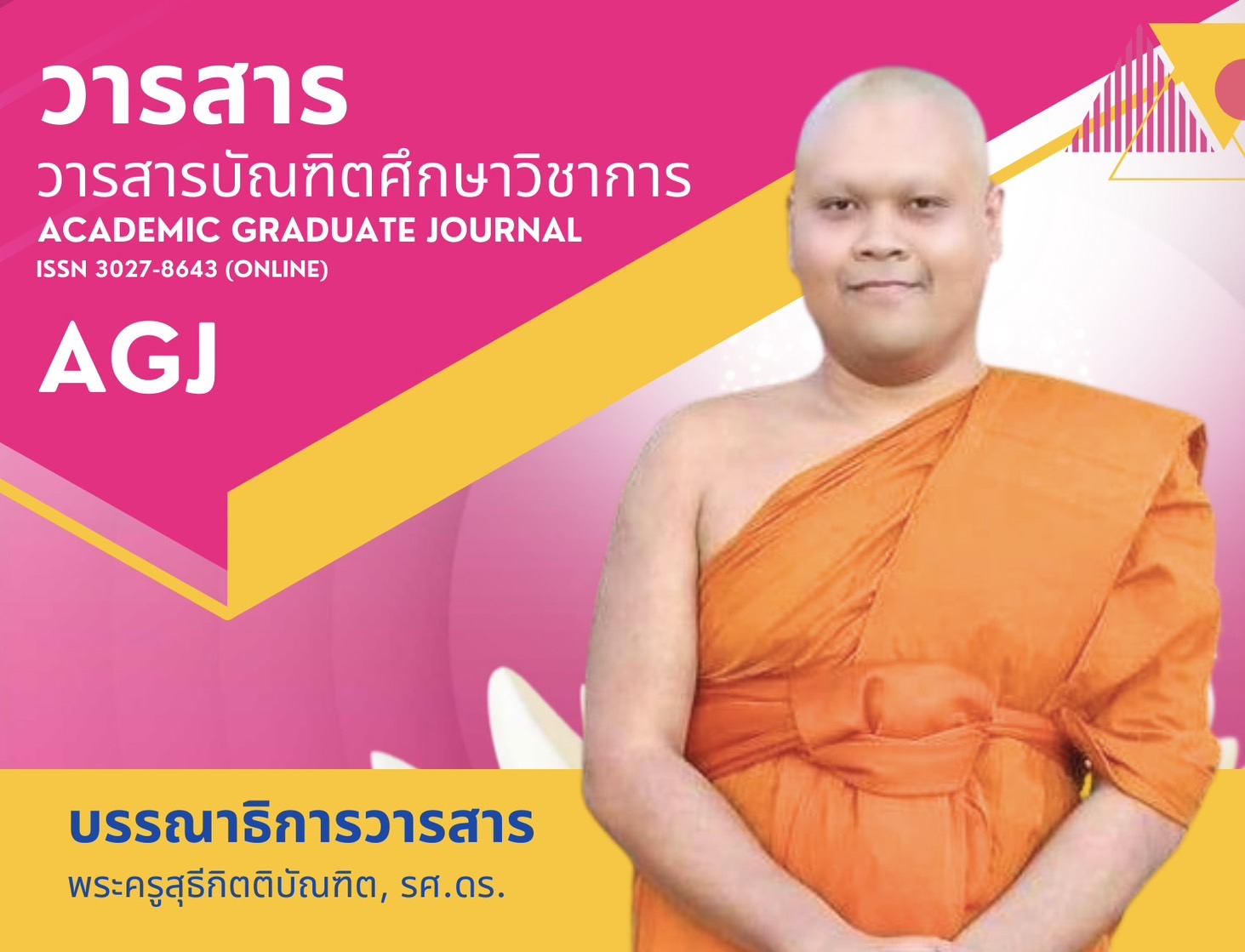FOUR SUBLIME STATES OF MIND FOR LEADERS IN ORGANIZATIONS
Keywords:
Four Sublime States of Mind, Leaders, OrganizationsAbstract
This academic article on “Four Sublime States of Mind for Leaders in Organizations” is aimed at studying the approaches of the four sublime states of mind, which is a Buddhist doctrine to use for leaders in organizations for management. This article was studied from documents, textbooks, and research. The results of the study found that it is very important for organizational leaders to have Dhamma in their hearts because they are the ones who play an important role in making the organization prosperous and beneficial. In addition, the conduct of leaders is also an example for the personnel in the organization to follow. He must have the four sublime states of mind in managing the organization, consisting of 1. sharing love Which is having kindness and good intentions towards the personnel in the organization and wanting them to be happy, 2. creating good relationships from generous assistance requires thinking of ways to help personnel in the organization who are in distress to escape from suffering, not being silent, indifferent, and having a mind that wants to help and solve problems to be overcome, 3. Promotion and support Leaders must be happy when their personnel are successful and progress further, ready to encourage and support them, not discourage jealousy, and 4. be neutral and consistent, not biased by preferences. Or hate, act with fairness.
References
แก้ว ชิดตะขบ. (2546). รวมวิชาธรรมศึกษาชั้นตรี. กรุงเทพฯ: โรงพิมพ์การศาสนา.
ดนัย จันทร์เจ้าฉาย. (2552). กลยุทธ์น่านน้ำสีขาว. กรุงเทพฯ: ดีเอ็มจี.
ประเวศ วะสี. (2544). ภาวะผู้นำ พยาธิสภาพสังคมไทยและวิธีแก้ไข. กรุงเทพฯ: พิฆเณศพริ้นติ้ง เซ็นเตอร์.
พระเทพโสภณ (ประยูร ธมฺมจิตโต). (2546). มณีแห่งปัญญา: หนังสือคู่มือสำหรับนักบริหาร. กรุงเทพฯ: ธรรมสภา.
พระธรรมกิตติวงศ์ (ทองดี สุรเตโช). (2548). พจนานุกรมเพื่อการศึกษาพุทธศาสน์ ชุดคำวัด. กรุงเทพฯ: วัดราชโอรสาราม.
พระพรหมคุณาภรณ์ (ป.อ. ปยุตโต). (2543). พจนานุกรมพุทธศาสน์ ฉบับประมวลศัพท์ (พิมพ์ครั้งที่ 9). กรุงเทพฯ: โรงพิมพ์มหาจุฬาลงกรณราชวิทยาลัย.
_____. (2548). มองสันติภาพโลกผ่านภูมิหลังอารยะธรรมโลกาภิวัฒน์ (พิมพ์ครั้งที่ 3). กรุงเทพฯ: บริษัทพิมพ์สวยจำกัด.
พระพุทธโฆษาจารย์ (ป.อ.ปยุตโต). (2548). คัมภีร์วิสุทธิมรรค ฉบับ 100 ปี (พิมพ์ครั้งที่ 6). กรุงเทพฯ: บริษัท ธนาเพรส จำกัด.
พระมหาบุญมี มาลาวชิโร. (2553). พุทธบริหาร: สู่สุดยอดนักบริหารผู้ทรงภูมิที่ลูกน้องรักและเทิดทูนอย่างจริงใจ. กรุงเทพฯ: ธิงค์บียอนด์ บุ๊ค.
ภิญโญ สาธร. (2526). หลักการบริหารการศึกษา. กรุงเทพฯ: โรงพิมพ์คุรุสภา.
สมชาย ภคภาสน์วิวัฒน์. (2543). การบริหารเชิงกลยุทธ์. กรุงเทพฯ: สำนักพิมพ์อมรินทร์.
สำนักงานคณะกรรมการพัฒนาระบบราชการ. (2548). คู่มือการแปลงยุทธศาสตร์สู่การปฏิบัติด้วยการบริหารโครงการ. กรุงเทพฯ: สหมิตรพริ้นติ้ง.







